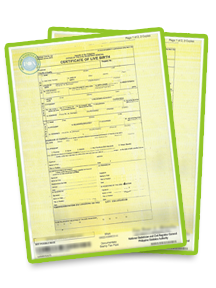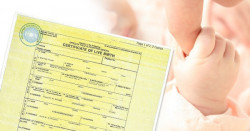
In 2012, the Philippines introduced the Data Privacy Act (DPA), officially known as Republic Act 10173, marking a significant milestone in the sphere of data protection and privacy. This groundbreaking legislation was born out of the growing recognition that personal and sensitive information, often contained within civil registry documents, needed legal protection.
The DPA was conceived as a shield to safeguard the privacy and security of individuals in an increasingly digital and data-driven world. It set forth stringent regulations that spanned the entire data lifecycle, from the moment information was collected to its eventual use, storage, and processing.
This act was a resounding declaration of the government's commitment to upholding the fundamental right to privacy of Filipinos. It recognized that in an age where data breaches, identity theft, and digital vulnerabilities were becoming all too common, the need to protect personal information had never been more critical.
The DPA was not merely a legal document; it was a testament to the evolving landscape of data protection in the Philippines. It emphasized the importance of safeguarding privacy in an age where information could be easily accessed and exploited, making it a crucial piece of legislation for the modern era.
PSAHelpline.ph: Preserving Privacy in PSA Certificate Requests
PSAHelpline.ph is an online platform duly authorized by the Philippine Statistics Authority (PSA) to facilitate the order of essential PSA certificates, including birth, marriage, death, and the Certificate of No Marriage (CENOMAR). By offering a secure and convenient way for Filipinos to obtain these vital documents, PSAHelpline.ph plays a vital role in ensuring data privacy throughout the ordering and delivery process.
Strict Delivery Process
One of PSAHelpline's standout features is its strict delivery process. The core principle is to ensure that only the document owner or the authorized requester will receive these critical certificates. The individuals recognized as authorized requesters are:
- For Birth Certificate, Marriage Certificate, CENOMAR: Parents and Children of legal age of the certificate owner
- For Death Certificate: Certificate owner’s legal spouse and children of legal age

In some cases, individuals who place requests through PSAHelpline can nominate a family member to act as their authorized person to receive the ordered PSA certificates. The nominee must fall within the following categories:
- Document owner’s child who is of legal age
- Document owner’s parents
- Document owner’s legal spouse
Strict Verification Protocols
To further enhance security, PSAHelpline has established strict verification requirements. The owner of the document, the authorized requester, or the nominated person collecting the documents must present a valid government-issued ID to the courier as a means of confirming their identity. It is crucial to highlight that the nominated person receiving PSA certificates must reside at the same delivery address as the document owner. Additionally, they are not allowed to authorize someone else to collect the documents on their behalf.
The FAQ page contains the complete list of valid IDs accepted by PSAHelpline.
Balancing Convenience and Data Privacy
The concept of balancing convenience and data privacy is at the core of PSAHelpline.ph's operation. While the platform offers an efficient means of obtaining essential PSA certificates, it also prioritizes the protection of sensitive personal information of its applicants.
In an age where data breaches and identity theft are real concerns, the stringent measures implemented by PSAHelpline serve as a shield against potential risks. PSAHelpline's commitment to this balance ensures that accessibility to crucial documents does not come at the expense of personal data security.



